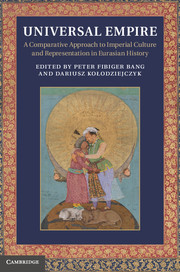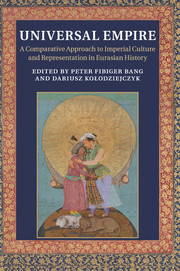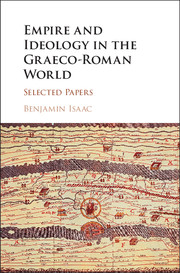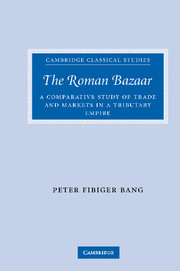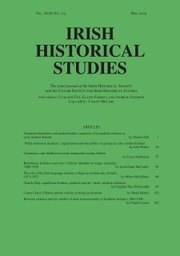The Roman Empire and World History
How do we fit the Roman Empire into world history? Too often the empire has simply been conceived of in terms of the West. But Rome was too big to be squeezed into a purely European model; her empire bestrode three continents. Peter Fibiger Bang develops a radical new world history framework for the Roman Empire, presenting it as part of an Afro-Eurasian arena of grand empires that dominated the shape of history before the forces of globalization and industrialization made the world centre on Europe from the eighteenth century onwards. It was a world before East and West. The book traces surprising cultural connections and societal similarities between Rome and the other vast empires of Afro-Eurasia. Whether we look at war-making, slavery, empire formation, literary culture or intercontinental trade and rebellion, Rome is best approached in its Afro-Eurasian context.
- Provides a non-Eurocentric framework for the Roman Empire and its place in world history
- Offers an interdisciplinary reflection on Roman history, illuminating the Roman experience through dialogue with models found across Afro-Eurasia, from East and South Asian studies and from the Middle East
- Covers a diverse range of topics, from slavery, peasantries and state formation to universal empires, cosmopolitan literary cultures, pre-modern world trade and rebellion, to exemplify how a global history perspective can enrich the study of ancient Rome
Product details
November 2025Hardback
9781316516102
200 pages
229 × 152 mm
Not yet published - available from November 2025
Table of Contents
- 1. Rome and pre-colonial world history
- 2. The expanding world of warring states: ecology, state-formation, slavery
- 3. Among empires – the universal realms of the Afro-Eurasian world
- 4. The Imperial cosmopolis: courtly literary languages and monotheist religions
- 5. Premodern globalization? Transcontinental trade and the rituals of consumption in the Afro-Eurasian arena
- 6. Resistance, rebellion and renewal
- Conclusion: Beyond globalization: the world histories for Rome.


